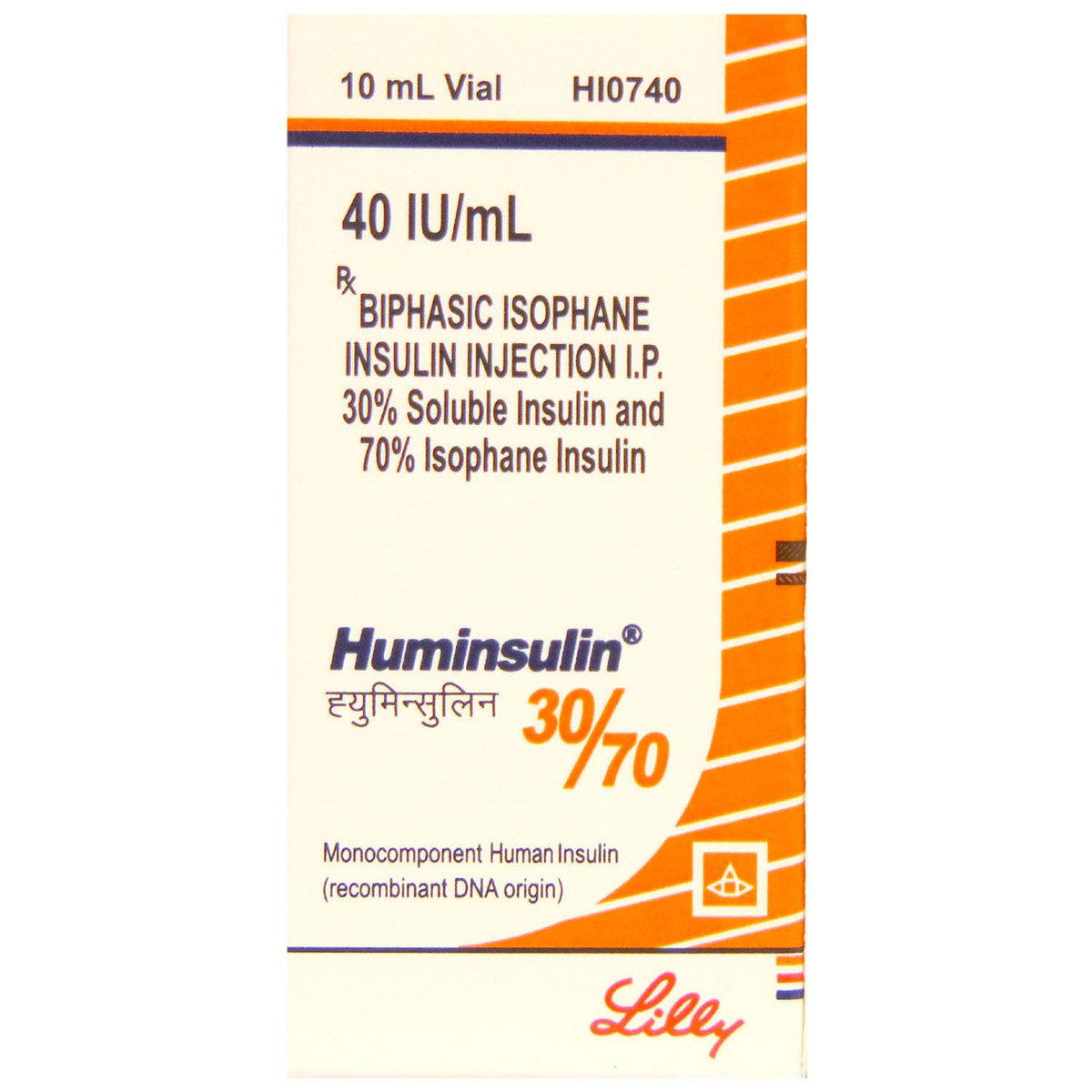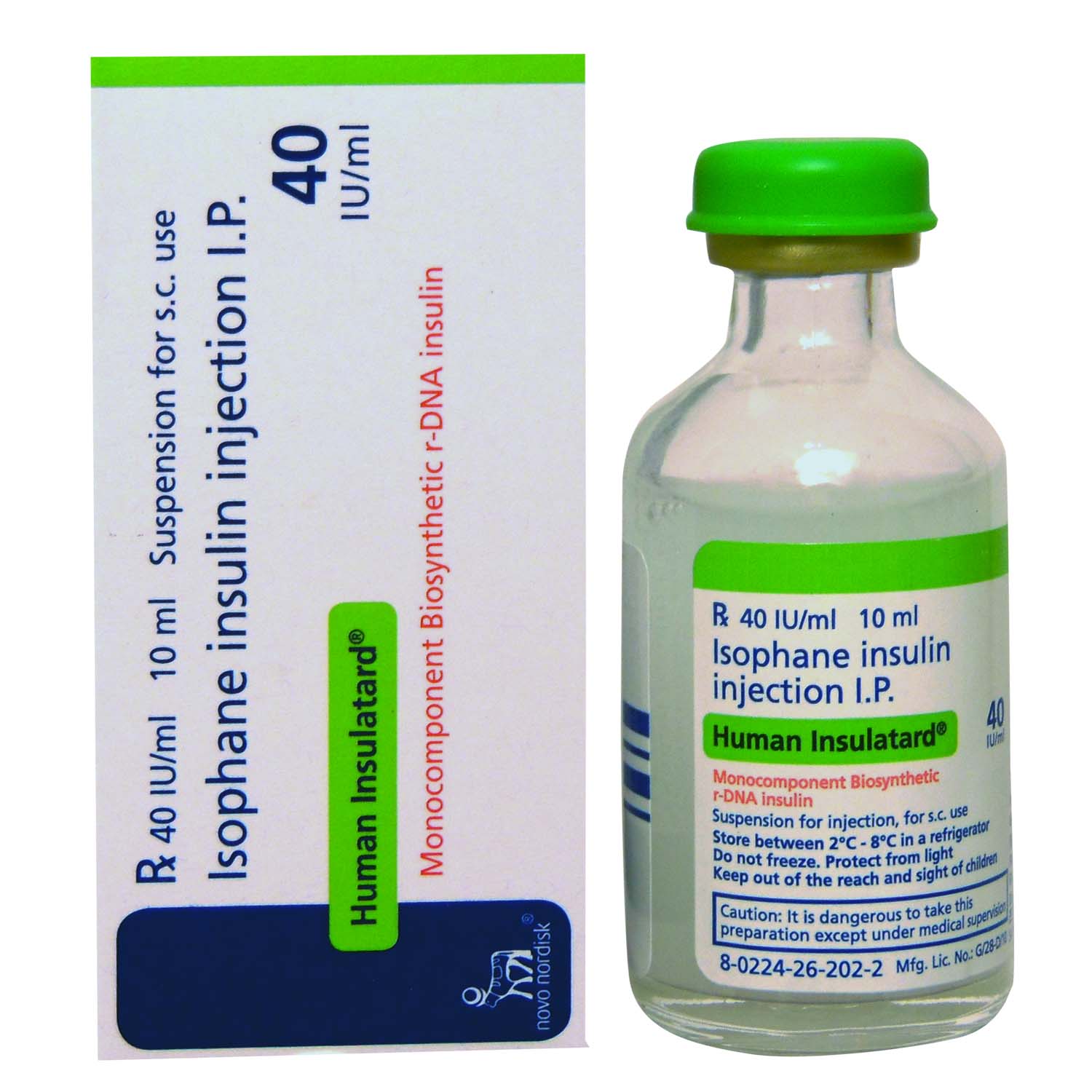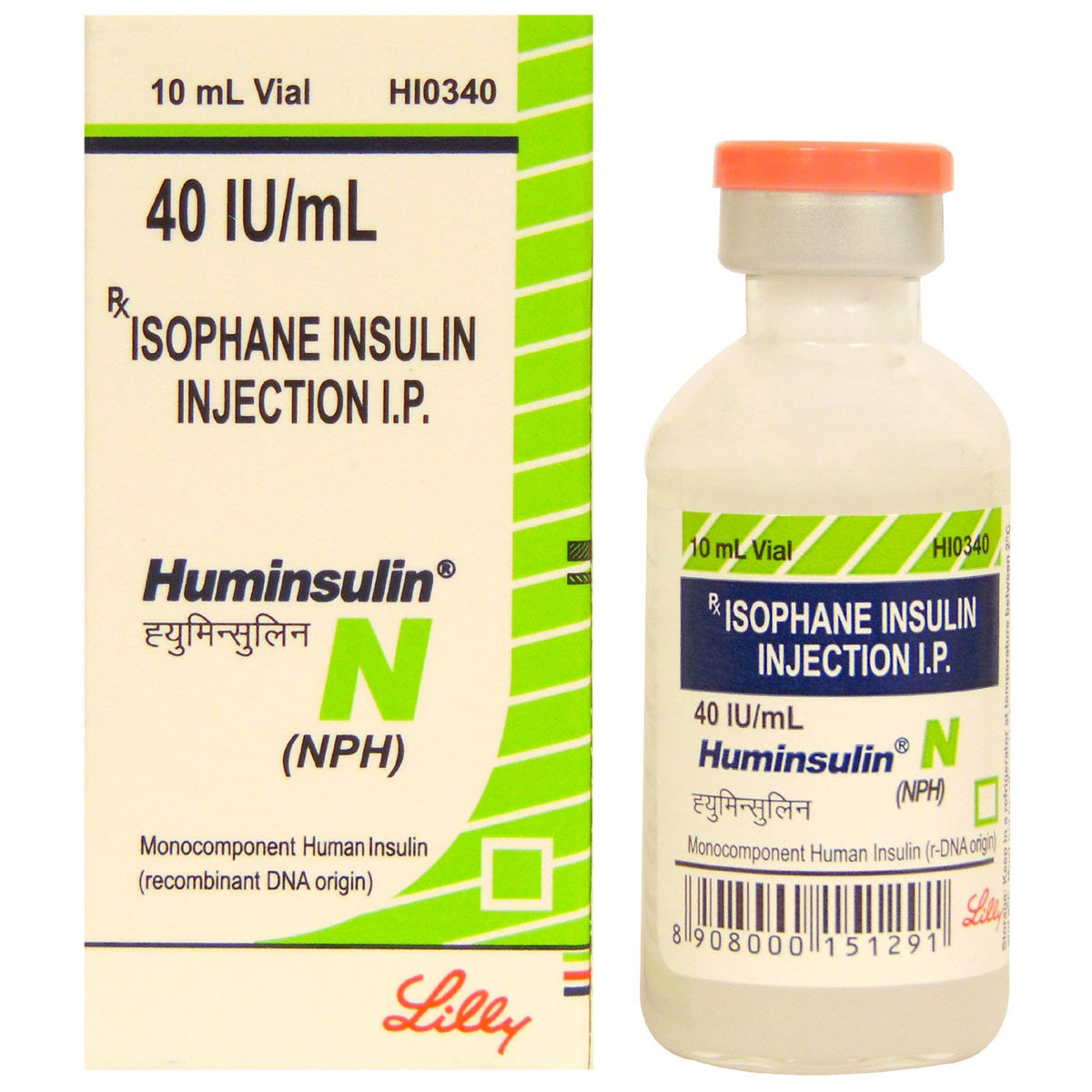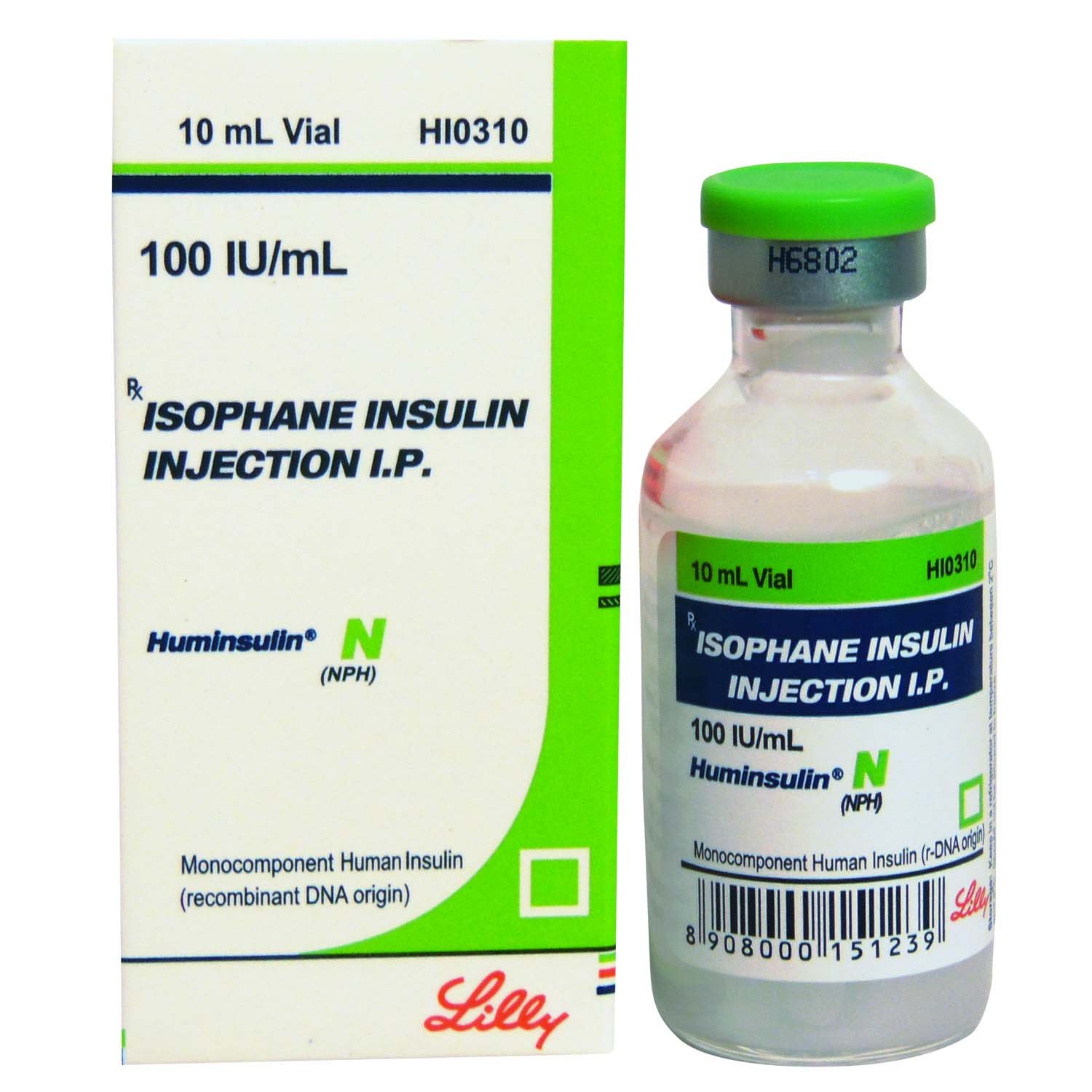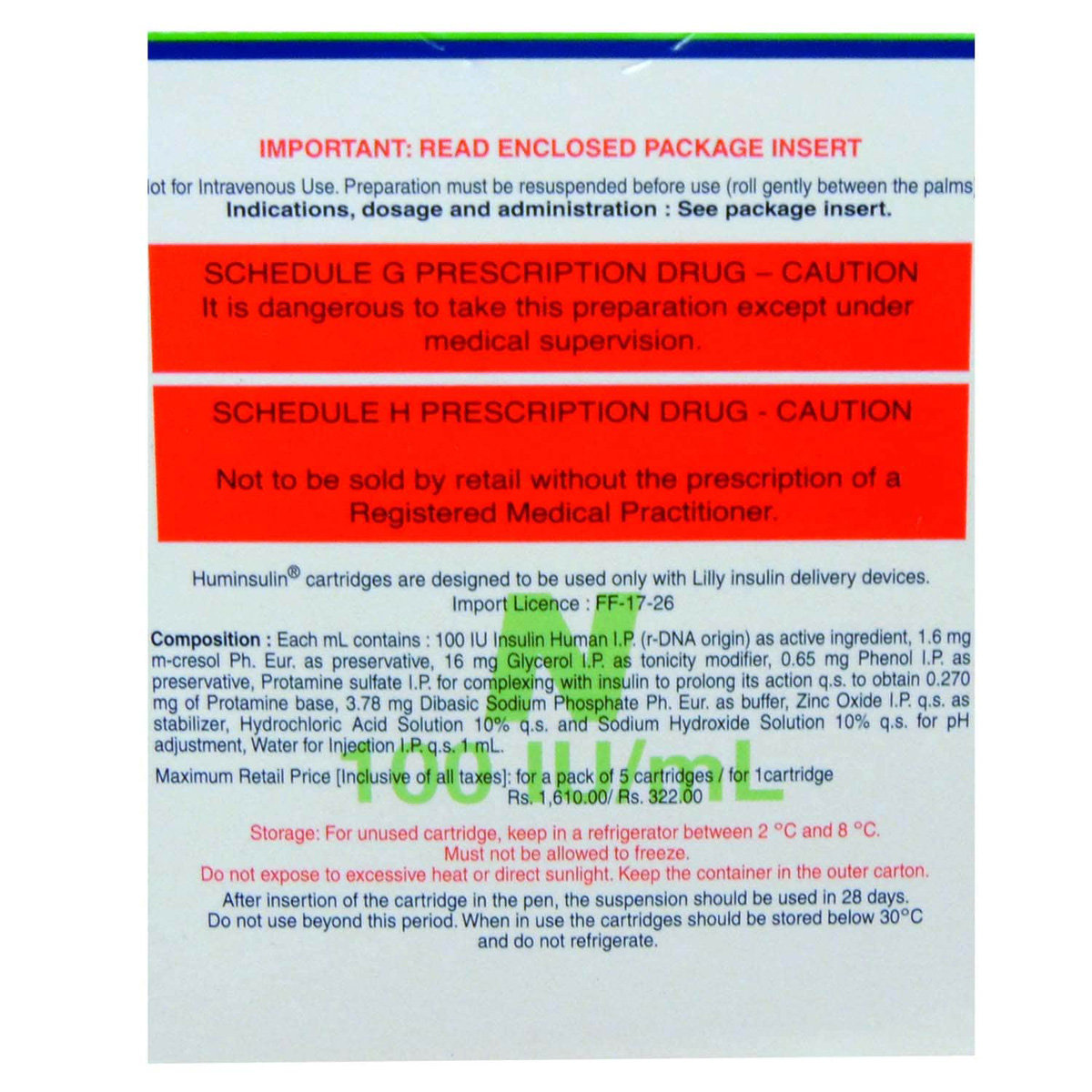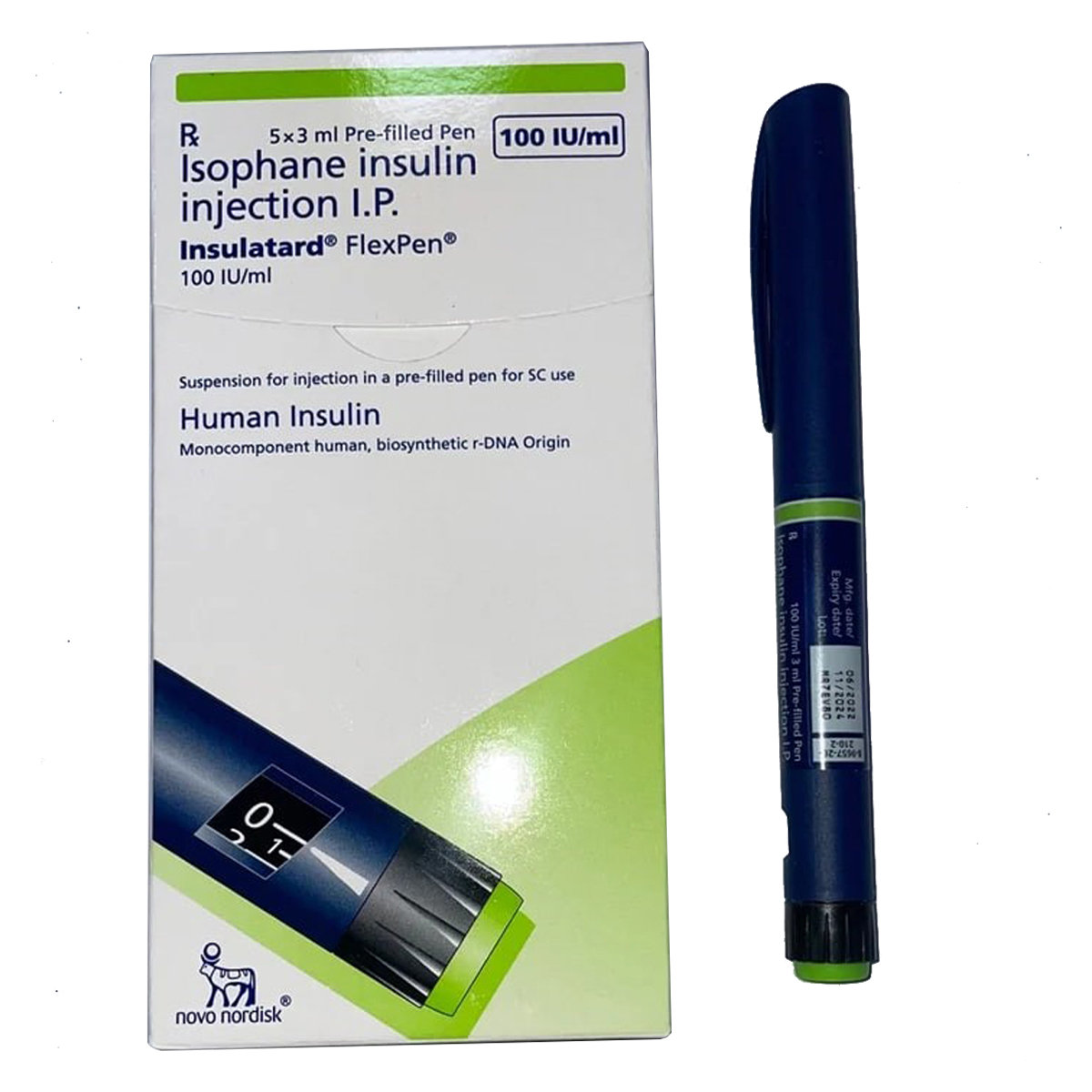Insulin Isophane+soluble Insulin
About Insulin Isophane+soluble Insulin
Insulin Isophane+soluble Insulin belongs to the class of medicines called antidiabetics used to treat both type 1 and type 2 diabetes mellitus. Diabetes mellitus is a condition that affects the way the body processes glucose. In Diabetes Mellitus Type 1, the body does not make enough insulin to control blood sugar levels. In Diabetes Mellitus type 2, either the body stops producing enough insulin (the hormone which helps to decrease sugar levels in the blood) or there is resistance to the action of insulin. As a result, insulin is produced in large amounts, but it cannot act on the organs of the body.
Insulin Isophane+soluble Insulin is a combination of two drugs, namely: Soluble insulin (a short-acting type of insulin) and Insulin isophane (intermediate-acting). Insulin Isophane+soluble Insulin suppresses the production of sugar in the liver and facilitates the reuptake of sugar in the fat and muscle cells, thereby Insulin Isophane+soluble Insulin ensures rapid and consistent sugar control.
You are advised to take Insulin Isophane+soluble Insulin for as long as your doctor has prescribed it for you, depending on your medical condition. In some cases, Insulin Isophane+soluble Insulin may cause certain common side effects like an allergic reaction at the site of injection, hypoglycemia (low blood glucose level), itching, lipodystrophy (skin thickening or pits at the injection site), oedema (swelling), rashes, and weight gain. Most of these side effects of Insulin Isophane+soluble Insulin do not require medical attention and gradually resolve over time. However, if the side effects are persistent, reach out to your doctor.
Consult your doctor before taking Insulin Isophane+soluble Insulin if you are pregnant or breastfeeding. Insulin Isophane+soluble Insulin may cause drowsiness, so drive with caution. Avoid alcohol consumption along with Insulin Isophane+soluble Insulin as it may cause unpleasant side effects. Insulin Isophane+soluble Insulin should be given to children only if prescribed by the doctor. Keep your doctor informed about your health condition and medications to rule out any interactions. Insulin Isophane+soluble Insulin has to be stored in the refrigerator between 2-8°C else its efficiency may be lost. Do not store in the freezer.
Uses of Insulin Isophane+soluble Insulin
Medicinal Benefits
Insulin Isophane+soluble Insulin is a combination of two drugs, namely: Soluble insulin (a short-acting type of insulin) and Insulin isophane (intermediate-acting). Insulin Isophane+soluble Insulin is used for the treatment of both type 1 and type 2 diabetes mellitus. Insulin Isophane+soluble Insulin suppresses the production of sugar in the liver and facilitates the reuptake of sugar in the fat and muscle cells, thereby Insulin Isophane+soluble Insulin ensures rapid and consistent sugar control. Insulin Isophane+soluble Insulin helps in improving the glycaemic control which in turn decreases the risk of progression of diabetes complications like damage of retina (retinopathy), damage of kidney (nephropathy), damage of nerve cells (neuropathy), delayed wound healing, and diabetic foot ulcer.
Directions for Use
Storage
Side Effects of Insulin Isophane+soluble Insulin
- Allergic reaction at the site of injection
- Hypoglycemia (low blood glucose level)
- Itching
- Lipodystrophy (skin thickening or pits at the injection site)
- Oedema (swelling)
- Rashes
- Weight gain
Drug Warnings
Do not take Insulin Isophane+soluble Insulin if you are allergic to any of the contents. Inform your doctor if you have hypoglycemia (low blood glucose levels), hypokalemia (low levels of potassium in the blood), heart, kidney or liver problems. Consult a doctor before taking Insulin Isophane+soluble Insulin if you are pregnant or breastfeeding. Insulin Isophane+soluble Insulin may cause dizziness, so drive only if you are alert. You are recommended not to consume alcohol as it may cause unpleasant side effects. Care should be taken when you are travelling across more than 2 time zones; your doctor may adjust your insulin schedule.
Drug Interactions
Drug-Drug Interaction: Insulin Isophane+soluble Insulin may interact with medicines such as pain killers (aspirin), antibiotics (ciprofloxacin), bronchodilators (albuterol, ipratropium), diuretic (furosemide), anti-hypertensive (metoprolol), anti-depressant (sertraline), oral hypoglycemic agents, monoamine oxidase inhibitors, anabolic steroids, glucocorticoids, thyroid hormones and sympathomimetics.
Drug-Food Interaction: Avoid consumption of alcohol along with Insulin Isophane+soluble Insulin as it may lead to unpleasant side effects.
Drug-Disease Interaction: Inform your doctor if you have kidney disease, liver disease, low potassium level (hypokalaemia), and low blood sugar/glucose level (hypoglycemia).
Drug-Drug Interactions Checker List:
Safety Advice

Alcohol
unsafeYou are recommended not to consume alcohol along with Insulin Isophane+soluble Insulin to avoid unpleasant side effects. Alcohol may cause increased drowsiness.

Pregnancy
safe if prescribedIt is safe to use Insulin Isophane+soluble Insulin during pregnancy if prescribed by the doctor. However, consult your doctor if you have any concerns regarding this.

Breast Feeding
safe if prescribedIt is safe to use Insulin Isophane+soluble Insulin by breastfeeding mothers if prescribed by the doctor. However, consult your doctor if you have any concerns regarding this.

Driving
cautionInsulin Isophane+soluble Insulin may cause drowsiness and hypoglycemia (low blood sugar). Therefore, drive only if you are alert.

Liver
cautionInsulin Isophane+soluble Insulin should be taken with caution, especially if you have a history of liver disease. The dose may have to be adjusted by your doctor.

Kidney
cautionInsulin Isophane+soluble Insulin should be taken with caution, especially if you have a history of kidney disease. The dose may have to be adjusted by your doctor.

Children
safe if prescribedInsulin Isophane+soluble Insulin can be given safely to children provided the dose has been prescribed by a child specialist.
Habit Forming
Diet & Lifestyle Advise
- Include foods rich in healthy carbohydrates, fibre, fruits, whole grains, and vegetables in your diet.
- Try eating food at regular intervals. Do not skip meals. Also, try not to overeat.
- Follow a healthy diet and walk for at least a few minutes to complement treatment with Insulin Isophane+soluble Insulin.
- Maintain a healthy weight by exercising regularly.
- Rest properly, avoid stress by doing meditation or yoga.
Special Advise
If you feel any symptoms of hypoglycemia (fatigue, dizziness, confusion, heart palpitations, shakiness and anxiety), consult your doctor immediately.
Patients Concern
Disease/Condition Glossary
Diabetes: Diabetes is a chronic or lifelong disease that prevents the body from utilizing insulin properly. Insulin is the hormone that controls sugar levels in the blood. Diabetes is a condition in which blood glucose levels are above normal. It is of two types, namely: type-1 and type-2 diabetes. Type-1 diabetes is a condition in which the pancreas produces little or no insulin. Type-2 diabetes affects the way body processes the sugar. Symptoms of diabetes include lack of energy, tiredness, frequent urination, excess thirst, dry mouth, blurry vision, constant hunger, weight loss, and itchy skin.
FAQs
Insulin Isophane+soluble Insulin suppresses the production of sugar in the liver and facilitates the reuptake of sugar in the fat and muscle cells, thereby Insulin Isophane+soluble Insulin ensures rapid and consistent sugar control.
Insulin Isophane+soluble Insulin may sometimes lower the blood glucose levels more than normal, leading to hypoglycaemia. Regularly monitor your blood sugar levels while taking Insulin Isophane+soluble Insulin. Hypoglycaemia symptoms include headache, drowsiness, cold sweat, feeling sick, unusual tiredness or weakness, and visual disturbances.
Do not stop taking Insulin Isophane+soluble Insulin without consulting your doctor on your own as it may cause an increase in blood glucose levels. Continue taking Insulin Isophane+soluble Insulin for as long as your doctor has prescribed it to you. Do not be reluctant to speak with your doctor if you experience any difficulty while taking Insulin Isophane+soluble Insulin.
Maintain a healthy diet by regular intake of carbohydrates such as bread and products containing starch and sugar. Eat your meals regularly, and do not exercise heavily for longer durations with an empty stomach.
Hypoglycaemia may occur following prolonged or severe exercise, during illness, alcohol consumption, low food intake, or when Insulin Isophane+soluble Insulin is taken along with other antidiabetic medicines.

